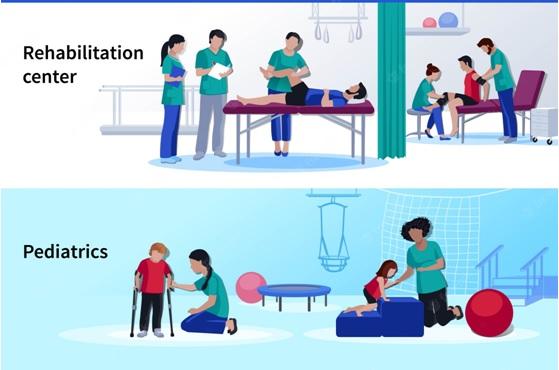At LifeLine Rehab Centers, we pride ourselves on offering cutting-edge, evidence-based treatment methods for alcohol addiction. Our approach is grounded in scientific research and proven clinical practices, ensuring that our patients receive the most effective care possible. This article delves into the science behind our treatment methods and how they contribute to successful recovery outcomes Alcohol Addiction Treatment center in india...
The Neurobiology of Alcohol Addiction
Understanding the brain's role in addiction is crucial to effective treatment. Our methods are based on the latest neuroscientific research, which shows that alcohol addiction alters brain chemistry and structure. Key areas affected include:
- The reward system: Alcohol hijacks the brain's natural reward circuitry, leading to compulsive drinking.
- The prefrontal cortex: This area, responsible for decision-making and impulse control, is impaired by chronic alcohol use.
- The amygdala: Alcohol affects this region, which is involved in stress and emotion regulation.
Our treatment protocols are designed to address these neurobiological changes and promote healing in the brain.
Evidence-Based Psychotherapies
LifeLine employs a range of evidence-based psychotherapies, each backed by extensive research:
- Cognitive Behavioral Therapy (CBT): This approach helps patients identify and change negative thought patterns and behaviors associated with drinking.
- Motivational Enhancement Therapy (MET): MET is particularly effective in increasing motivation for change and adherence to treatment.
- Dialectical Behavior Therapy (DBT): DBT helps patients develop emotional regulation skills and mindfulness practices.
- Contingency Management: This method uses positive reinforcement to encourage abstinence and treatment engagement.
Pharmacological Interventions
In some cases, medication can play a crucial role in alcohol addiction treatment. Our medical team utilizes FDA-approved medications, including:
- Naltrexone: Reduces cravings and blocks the rewarding effects of alcohol.
- Acamprosate: Helps restore brain chemistry balance and reduces cravings.
- Disulfiram: Creates unpleasant side effects when alcohol is consumed, deterring drinking.
These medications are always used in conjunction with psychotherapy and other supportive interventions.
Neuroplasticity and Recovery
Recent research has highlighted the brain's remarkable ability to heal and rewire itself, known as neuroplasticity. Our treatment methods leverage this concept by:
- Promoting healthy habits that support brain healing
- Utilizing cognitive exercises to strengthen affected brain areas
- Incorporating mindfulness practices to enhance neural connectivity
Addressing Co-occurring Disorders
Scientific evidence shows a high prevalence of co-occurring mental health disorders in individuals with alcohol addiction. Our integrated treatment approach simultaneously addresses both addiction and any co-occurring conditions, such as depression or anxiety, for more comprehensive healing.
Biofeedback and Neurofeedback
These advanced techniques allow patients to gain control over involuntary bodily processes:
- Biofeedback helps manage stress and cravings by providing real-time information about physiological states.
- Neurofeedback trains the brain to produce healthier brainwave patterns associated with reduced addiction severity.
Nutritional Science in Recovery
Proper nutrition plays a vital role in recovery. Our nutritional approach is based on scientific research showing that:
- Certain nutrients can help repair alcohol-induced damage to the body and brain.
- A balanced diet can help stabilize mood and reduce cravings.
- Addressing nutritional deficiencies common in alcohol addiction can improve overall health and recovery outcomes.
Trauma-Informed Care
Recognizing the strong link between trauma and addiction, our trauma-informed care approach is based on neuroscience research. We utilize evidence-based trauma therapies, such as Eye Movement Desensitization and Reprocessing (EMDR), to address underlying traumatic experiences.
Measuring Treatment Efficacy
At LifeLine, we continuously evaluate the effectiveness of our treatments using scientifically validated assessment tools. This allows us to:
- Track individual progress
- Adjust treatment plans as needed
- Contribute to the broader field of addiction research
Conclusion
The science of sobriety is a rapidly evolving field, and at LifeLine Rehab Centers, we are committed to staying at the forefront of evidence-based practices. By combining cutting-edge research with compassionate care, we offer our patients the best possible chance at achieving lasting recovery from alcohol addiction. Our approach not only treats the symptoms of addiction but also addresses its root causes, promoting holistic healing and long-term sobriety.
Google Map - https://goo.gl/maps/PYdeyXLw8oE264zW7
Address: Survey No. 46/1/1, Heaven Park, Near Old Ganesh Temple, Mohammad Wadi, Pune – 411028, Maharashtra, India
